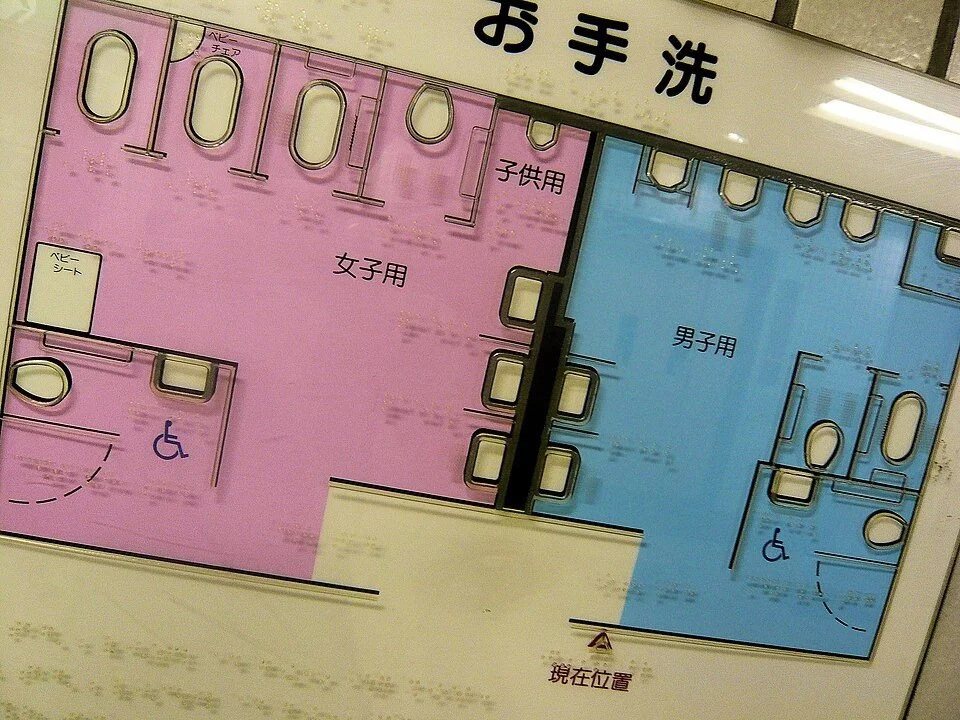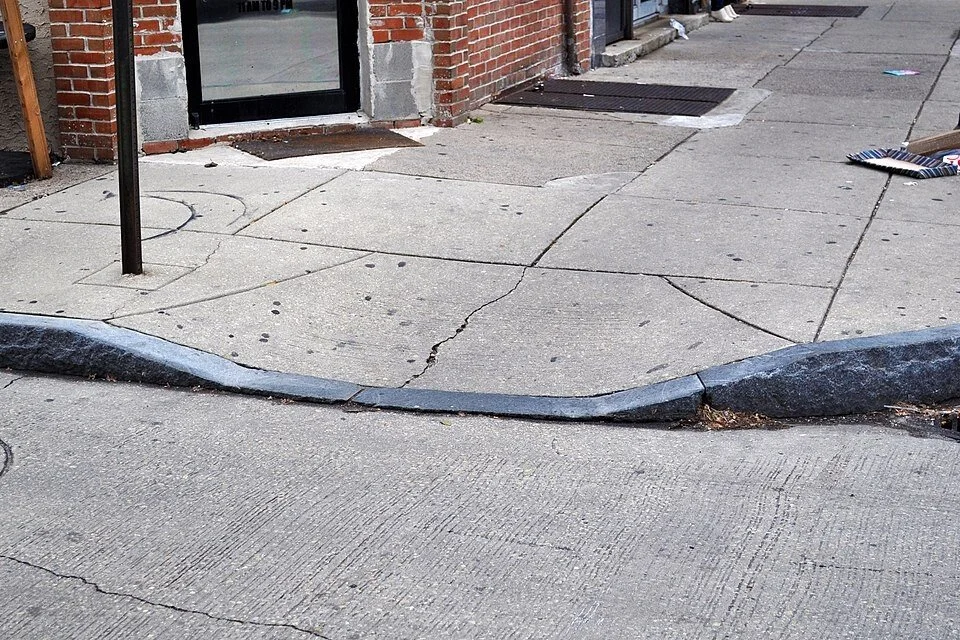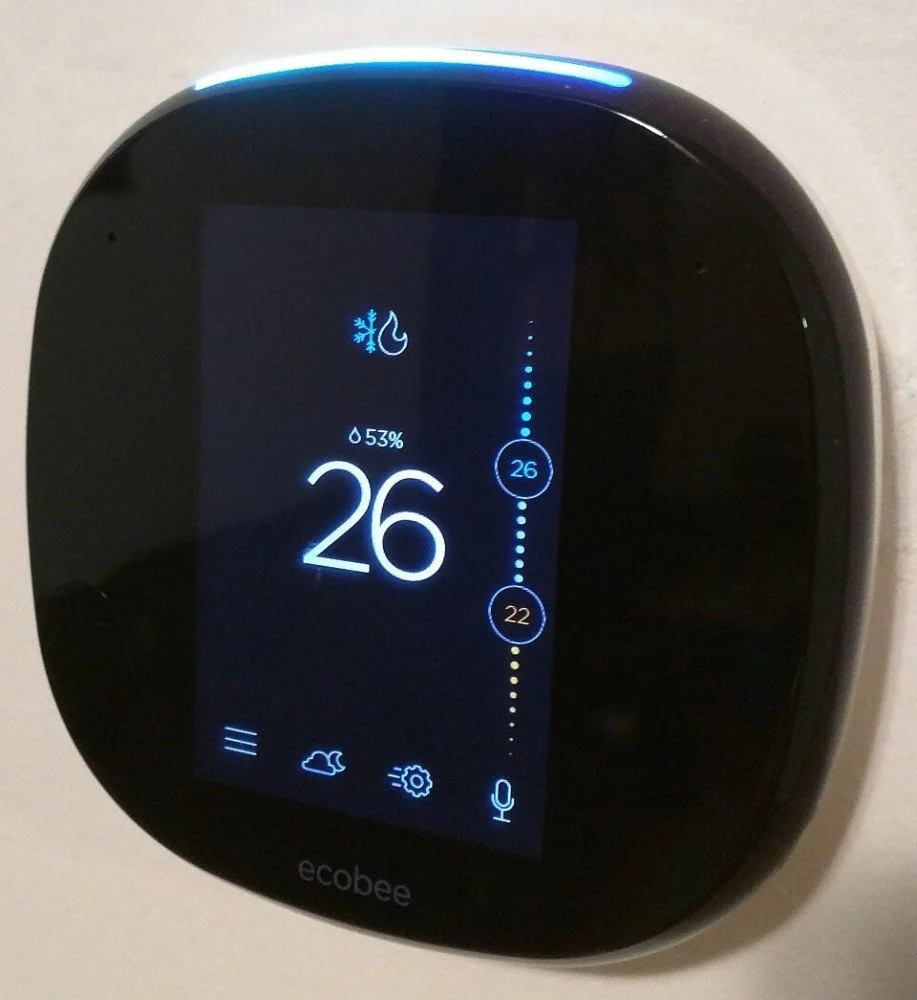Why Disability-Led Inclusive Design is a Game Changer for ESG
This article is part of our ‘ESG Insights: Driving Impact through Inclusion’ series, which was originally published on our LinkedIn on August 12, 2025. To get immediate access to future articles in our exclusive content on ESG and inclusion, be sure to Follow us on LinkedIn.
* * * * *
Defining Inclusive Design
Inclusive design is a mindset and process ensuring that products, environments, and services are created for and usable by as many individuals as possible — regardless of ability, background, or circumstance. It actively seeks to understand and accommodate diverse needs from the outset, rather than retrofitting accessibility as an afterthought. According to the British Standards Institute, inclusive design is “the design of mainstream products and/or services that are accessible to and usable by as many people as reasonably possible ... without the need for adaptation or specialised design.” [1]
Inclusive design of a map sign of public toilets, including braille, Kyoto, Japan (© Stéfan; CC BY-SA 2.0)
Key Principles of Inclusive Design
Inclusivity:
At its core, inclusive design commits to making solutions usable by all people — without discrimination. This means acknowledging and accommodating differences in ability, age, culture, gender, and circumstance. Inclusivity ensures dignity, safety, and full participation for everyone. For example, curb cuts benefit not only wheelchair users but also parents with strollers or travellers with rolling suitcases.
Sidewalk granite curb cut for wheelchair ramp, Philadelphia, USA (© Nicky-pilly; CC BY-SA 4.0)
Responsiveness:
Inclusive design requires listening closely to real users and their lived experiences. It means vetting assumptions, incorporating feedback, and allowing space for ongoing adaptation as needs evolve. Organisations can use participatory design methods — such as co-creation workshops or accessibility testing with people with disabilities — to ensure solutions remain relevant and effective.
Flexibility & Adaptability:
Designs should allow for a range of ways to interact, adapt, or experience a product or environment. This includes offering multiple formats for information (text, audio, visual), adjustable workspaces, or tools that can be customised to individual preferences. Flexible solutions mean more people can benefit in ways that suit them best, removing barriers to access and engagement.
Convenience:
Truly inclusive design is intuitive and reduces unnecessary complexity. It ensures that using a product or environment does not demand extra effort or special knowledge. User interfaces with clear language, logical layout, and recognised symbols can help make technology, services, and spaces accessible to all — making inclusion seamless rather than burdensome.
Research current practices to achieve inclusivity (© Interaction Design Foundation; CC BY-SA 4.0)
The ESG Relevance of Inclusive Design
Inclusive design practices fulfil key social tenets of Environmental, Social, and Governance (ESG) frameworks. By prioritising inclusion, companies make a concrete commitment to human rights, diversity, and equity — not just in statements, but in everyday operations and offerings.
Corporations That Prioritise Inclusion Are Better Equipped
Satisfy Regulatory Requirements: Inclusive design helps organisations proactively meet legal standards for accessibility and nondiscrimination. For example, compliance with the Americans with Disabilities Act (ADA), the EU Accessibility Act, or similar legislation not only prevents costly litigation but also signals good governance and corporate responsibility.
Expand Market Reach: When designs consider the widest user base—including people with disabilities, seniors, or those with temporary impairments—companies tap into large, often underserved market segments. Meeting the needs of these groups drives growth, fosters brand loyalty, and opens new business opportunities by creating products and services that appeal to a diverse range of customers.
Enhance Reputation: Consumers, investors, and future employees increasingly value authentic commitments to social inclusion. Companies recognised for inclusive products and services enjoy stronger brand reputations, higher customer satisfaction, and positive media attention. Diversity and inclusion awards and certifications further bolster public trust.
Drive Innovation: Incorporating diverse perspectives from the beginning leads to more creative, resilient, and future-ready solutions. Teams that prioritise inclusive design report higher levels of problem-solving and adaptability, producing products and services that stand out in a competitive landscape. Many mainstream innovations — from the touchscreen to voice assistants — originated from accessibility needs.
Foster an Inclusive Culture: Prioritising inclusion in external offerings typically translates into a more inclusive corporate culture as well. This boosts employee engagement, morale, and retention by demonstrating that diversity is valued not just in rhetoric, but in practice. Employees in inclusive companies are empowered to contribute fully, fostering a sense of belonging and shared purpose.
A smart thermostat with a touchscreen on the wall (© Shadowncs, CC BY-SA 4.0)
How Disability-Led Social Enterprises Create Value
Disability-led social enterprises take inclusive design from theory to everyday impact, delivering benefits that ripple across individuals, organisations, and communities.
Enhanced Product and Service Value: With lived expertise in navigating inaccessible systems, persons with disabilities offer insights that improve usability and widen appeal. For example, a website designed by and for people with vision impairments will likely feature high-contrast elements and keyboard navigation, benefiting all users. This approach leads to solutions that are not only compliant but often delightfully intuitive and user-friendly for broader populations.
Authentic and Measurable Community Impact: By employing, training, and empowering persons with disabilities, these enterprises break cycles of exclusion and underemployment. Employees report increased confidence, skills, and social participation, while communities benefit from enhanced understanding and reduced stigma. Research shows participants in such organisations experience improvements in wellbeing, independence, and life satisfaction. And quantitative research demonstrates that social ventures led by or employing people with disabilities create substantial improvements in wellbeing—for instance, among those engaged with such enterprises, average feelings of confidence increased by 31–49 percentage points, and emotional wellbeing improved by 15–52 percentage points [6].
Social and Economic Return on Investment: Disability-led enterprises consistently demonstrate higher social return on investment (SROI). Studies in Europe and Asia found that for every £1 or $1 invested, these ventures can return up to £116 in social value via increased employability, reduced reliance on state support, and community integration [6]. This efficiency translates to corporate value, enabling partners to maximise ESG impact per dollar spent.
Directly Addressing Employment Inequalities: People with disabilities worldwide face persistent barriers to securing meaningful, fairly compensated work. Disability-led businesses provide an alternative model, championing accessible recruitment, reasonable accommodations, and career progression tailored to diverse talents.
Championing Systemic Change: Through procurement dollars and partnership, corporations can scale the reach of disability-led social enterprises, embedding inclusion deeper into their own supply chains and inspiring sector-wide change. This creates ripple effects across industries, shifting mindsets from seeing accessibility as a compliance checkbox to a source of competitive advantage and innovation.
A screen capture of the Atulyakala official website
Success Case Studies
To illustrate the transformative power of disability-led inclusive design, here are several inspiring social enterprises from around the world. Each organisation exemplifies how authentic lived experience combined with innovative design solutions delivers both social impact and business value. These case studies highlight diverse approaches to inclusive design, demonstrating the tangible benefits of partnering with disability-led enterprises within corporate ESG strategies.
Atulyakala, India
Inclusive Design Solution: A social enterprise empowering deaf artists by providing training, employment, and exposure through a design studio, online store, and magazine—all run by deaf professionals with support from hearing allies.
Impact: Creates dignified employment opportunities, uplifts artistic talents of the deaf community, fosters inclusive creative industries, and challenges social stigma through authentic representation.
Official Website: https://atulyakalaindia.com/
“Atulyakala is India’s first lifestyle brand and design house run by deaf artists, aiming to empower the deaf community through employment and education. The brand offers a range of products, including apparel, accessories, and home goods, all designed and created by deaf individuals. A significant portion of the profits supports the education of deaf and mute students at their training centre.”
Be My Eyes, Denmark
Inclusive Design Solution: Mobile app connecting blind and low-vision users with volunteers for real-time help through video calls.
Impact: Over 4 million volunteers and 300,000+ users; fostered independence and global social inclusion.
Official Website: https://www.bemyeyes.com/
“Be My Eyes is a Danish mobile app that aims to help blind and visually impaired people recognise objects and manage everyday situations. An online community of sighted volunteers receive photos or videos from randomly assigned affected individuals and assists via live chat. In 2023, the company launched Be My AI, an AI-based interface to help blind and visually impaired users describe images.”
Nickel Support, UK
Inclusive Design Solution: Employment services for people with learning disabilities, with profits reinvested in care and inclusion.
Impact: Recognised for delivering measurable social value and sustaining long-term impact in communities.
Official Website: https://www.nickel.org.uk/
“Nickel Support a Community Interest Company from Sutton, which works with adults with learning disabilities and/or autism, was celebrated as best ‘Heart of Gold’ business at this year’s Small Awards for their work within their community with their trainees, and for the social impact they are having beyond their community, through their retail project Interestingly Different.”
e-NABLE, USA
Inclusive Design Solution: A global volunteer network 3D printing affordable prosthetic hands and arms, providing personalized, open-source assistive devices.
Impact: Delivered tens of thousands of prosthetic devices globally, empowering amputees and fostering community innovation and education.
Official Website: https://enablingthefuture.org/
“e-NABLE is a distributed, open source community that creates and shares open source designs for assistive devices. It is known for creating the first 3D printable prosthetic hand and sharing the designs and code for bioelectric limbs.”
Design Studio MZ+MM, Hong Kong, China
Inclusive Design Solution: A social enterprise employing people with disabilities to create inclusive design solutions across products and environments.
Impact: Promotes disability inclusion through authentic representation and meaningful employment, helping shift societal perceptions and improve accessibility locally.
Official Website: https://designbypods.hk/about-design-studio-mzmm-hong-kong-social-enterprise-english
“Design Studio MZ+MM is a Hong Kong-based social enterprise focused on branding and communication design. They distinguish themselves by integrating designers with disabilities into their creative process and emphasizing social impact alongside their client work. They offer services like branding, publication design, and multimedia production, and are known for their commitment to diversity, equity, and inclusion.”
Motivation, UK
Inclusive Design Solution:An international development charity and social enterprise focused on designing and supplying affordable, well-fitted wheelchairs and assistive technologies globally.
Impact: Addresses critical mobility needs for disabled people, improving independence and participation. Profits support broader social inclusion initiatives worldwide.
Official Website: https://motivation.org.uk/
“Motivation is a UK-based international development charity focused on providing wheelchairs and mobility solutions, particularly in developing countries. They design and manufacture wheelchairs, including active-style, sports, and supportive seating options, and work with local partners to distribute them and provide training.”
Eone, USA
Inclusive Design Solution: Designer of the Bradley timepiece: a sleek, modern watch readable by both sighted and visually impaired users through touch.
Impact: Combines excellent design with inclusivity, offering stylish products that enhance accessibility for people with vision impairments and promoting inclusive mainstream design.
Official Website: https://www.eone-time.com/
“Eone is a watch brand based in the United States that designs and sells stylish, functional, and accessible timepieces, particularly for individuals with visual impairments. Their watches, notably the “Bradley Timepiece,” utilise a tactile design with raised hour markers and a magnetic ball-bearing system to allow time-telling by touch, as well as sight.”
Fairly Marvellous, UK
Inclusive Design Solution: A social enterprise offering web design and digital solutions while actively supporting people facing barriers to work, including disabled and long-term unemployed individuals.
Impact: Provides meaningful employment opportunities, combats social isolation, and champions inclusive talent in the digital sector.
Official Website: https://fairlymarvellous.co.uk/
Studio FV, Scotland
Inclusive Design Solution: Media production and visual communication firm dedicated to social purpose, employing and collaborating with those facing barriers to employment, including persons with disabilities.
Impact: Delivers impactful visual experiences for clients while reinvesting proceeds to support inclusion, skill development, and community projects.
Official Website: https://studiofv.co.uk/
“Studio FV is a purpose-driven media production company based in Scotland. They offer a range of services including video production, photography, graphic design/branding, and social media content and management to various organisations and businesses.”
Conclusion
Disability-led inclusive design is transformative for business and society. By embedding these principles and partnering with disability-led social enterprises, organisations achieve more than compliance — they foster authentic belonging, unlock new markets, and set the standard for ESG leadership that drives impact and innovation for all.
Sources:
Image of a map sign https://commons.wikimedia.org/wiki/File:Braille_map_public_toilet_Kyoto_Japan.jpg
Image of a curb cut https://en.wikipedia.org/wiki/Curb_cut#/media/File:Curb_cut_for_wheelchair_ramp_(DSC_3616).jpg
Image of design principal https://public-images.interaction-design.org/tags/td-inclusive-design-03.png
Image of a touchscreen device https://commons.wikimedia.org/wiki/File:Ecobee4_on_the_wall_from_an_angle_showing_home_screen.jpg
https://www.nefconsulting.com/wp-content/uploads/2021/03/SCBA_Summary_Report-UnLtd.pdf
* * * * *
Design Studio MZ+MM makes Social Procurement conveyable.
Design Studio MZ+MM is a social enterprise (SEE Mark No. SEE 0114) based in Hong Kong, providing various types of graphic design services. Currently, the team is composed of hearing-impaired and hearing designers who practice disability inclusion, which is the primary reason for promoting "diversity, equity and inclusion" in corporate organizations. We support the United Nations Sustainable Development Goals SDGs: 10 “Reduced Inequalities” and 17 “Promote Partnerships for the Goals”.
In addition to providing job opportunities for diverse talents, this social enterprise also helps corporate clients implement advanced governance concepts. We also firmly believe that Design Studio MZ+MM is still the only social procurement solution practitioner and provider in Hong Kong, providing professional design services in the true sense of social procurement and adding multiple levels of added social value. To learn more about the vision and mission of this social enterprise, please click this link to jump to the Social Impact page.





